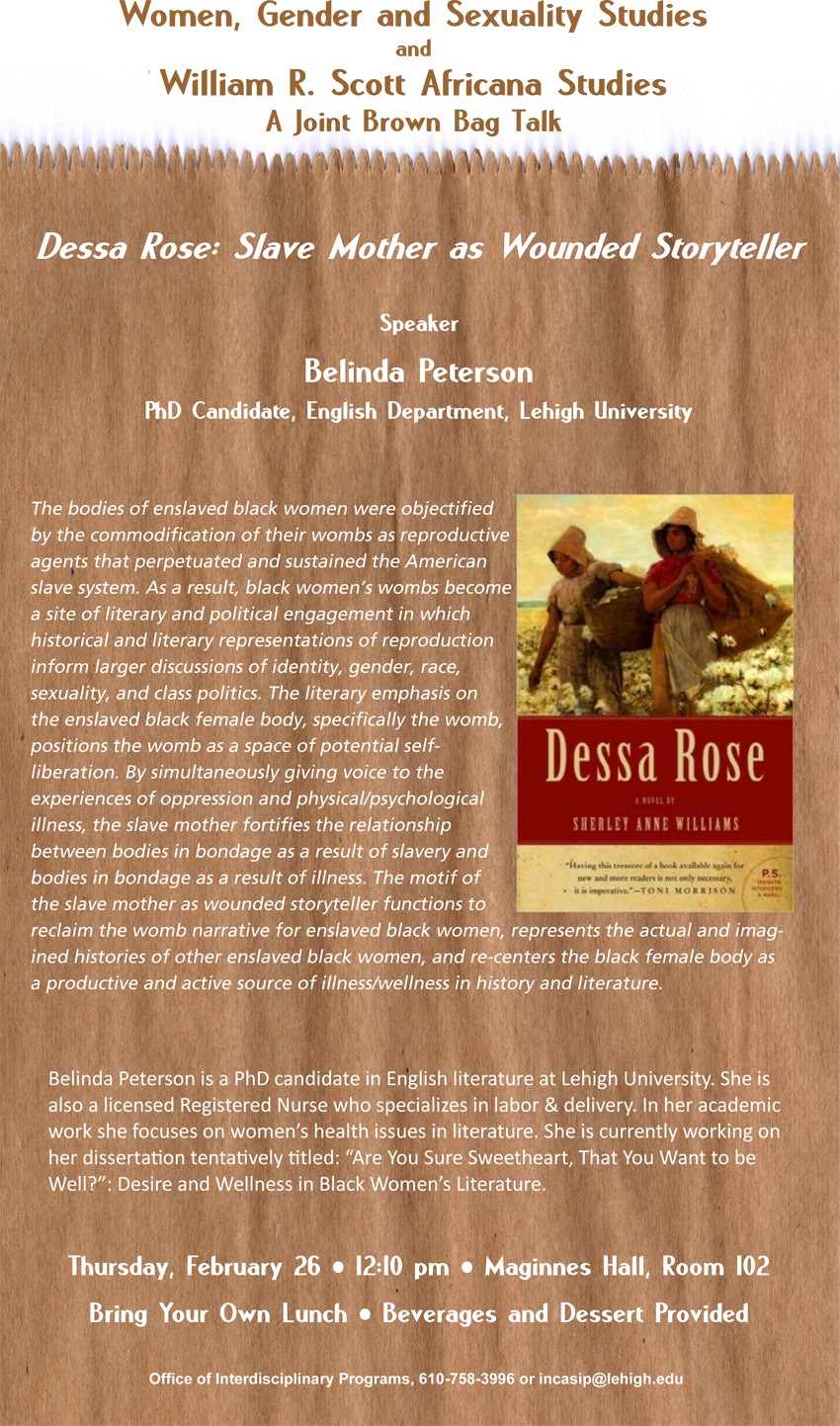
The bodies of enslaved black women were objectified by the commodification of their wombs as reproductive agents that perpetuated and sustained the American slave system. As a result, black women’s wombs become a site of literary and political engagement in which historical and literary representations of reproduction inform larger discussions of identity, gender, race, sexuality, and class politics. The literary emphasis on the enslaved black female body, specifically the womb, positions the womb as a space of potential self-liberation. By simultaneously giving voice to the experiences of oppression and physical/psychological illness, the slave mother fortifies the relationship between bodies in bondage as a result of slavery and bodies in bondage as a result of illness. The motif of the slave mother as wounded storyteller functions to reclaim the womb narrative for enslaved black women, represents the actual and imagined histories of other enslaved black women, and re-centers the black female body as a productive and active source of illness/wellness in history and literature.
